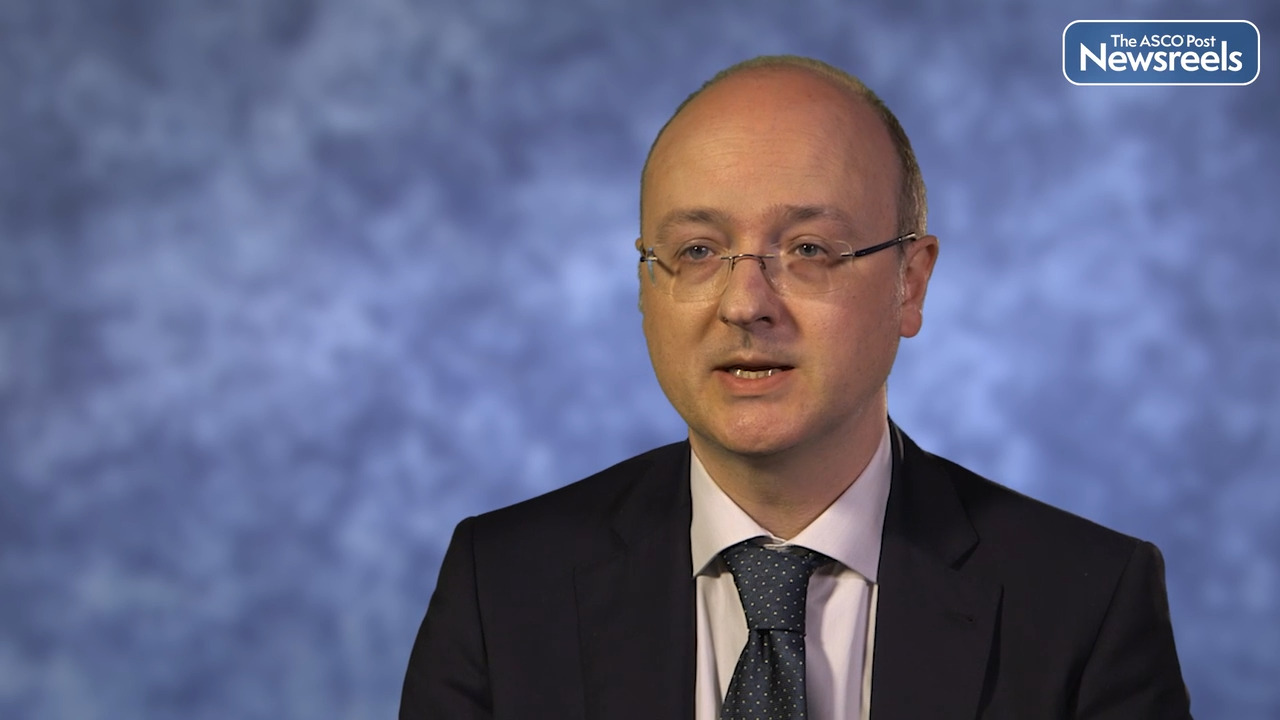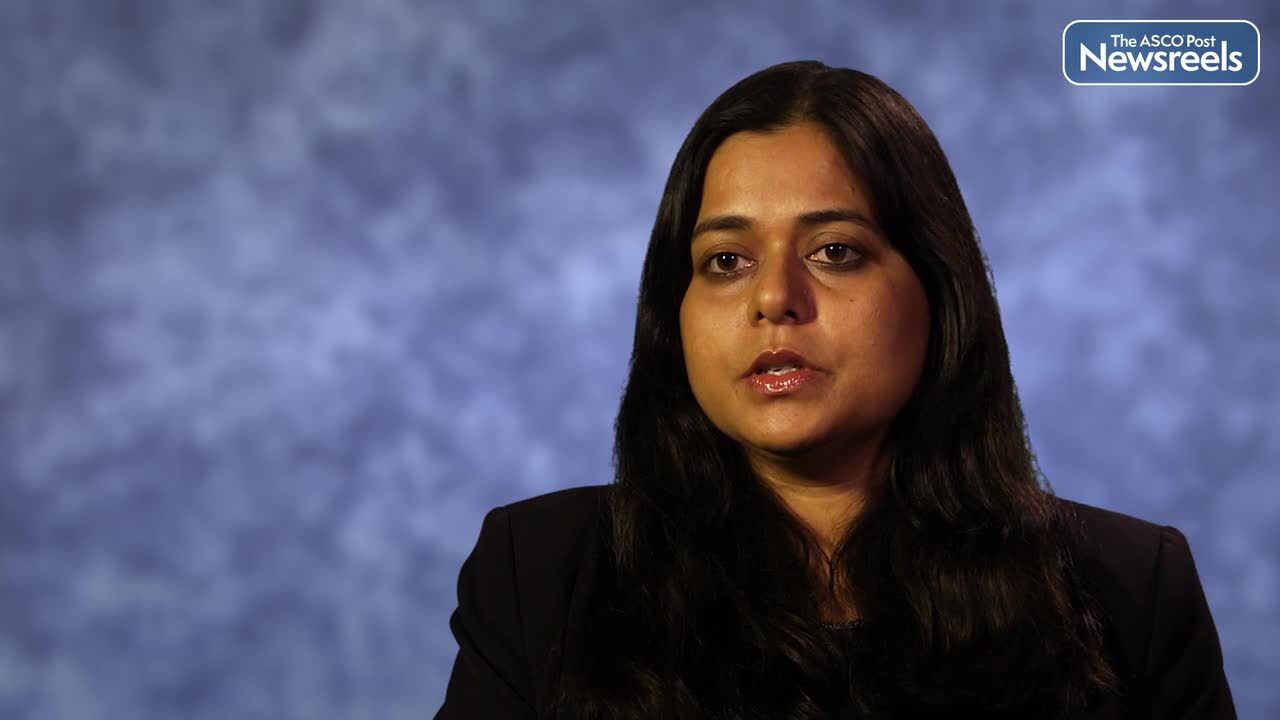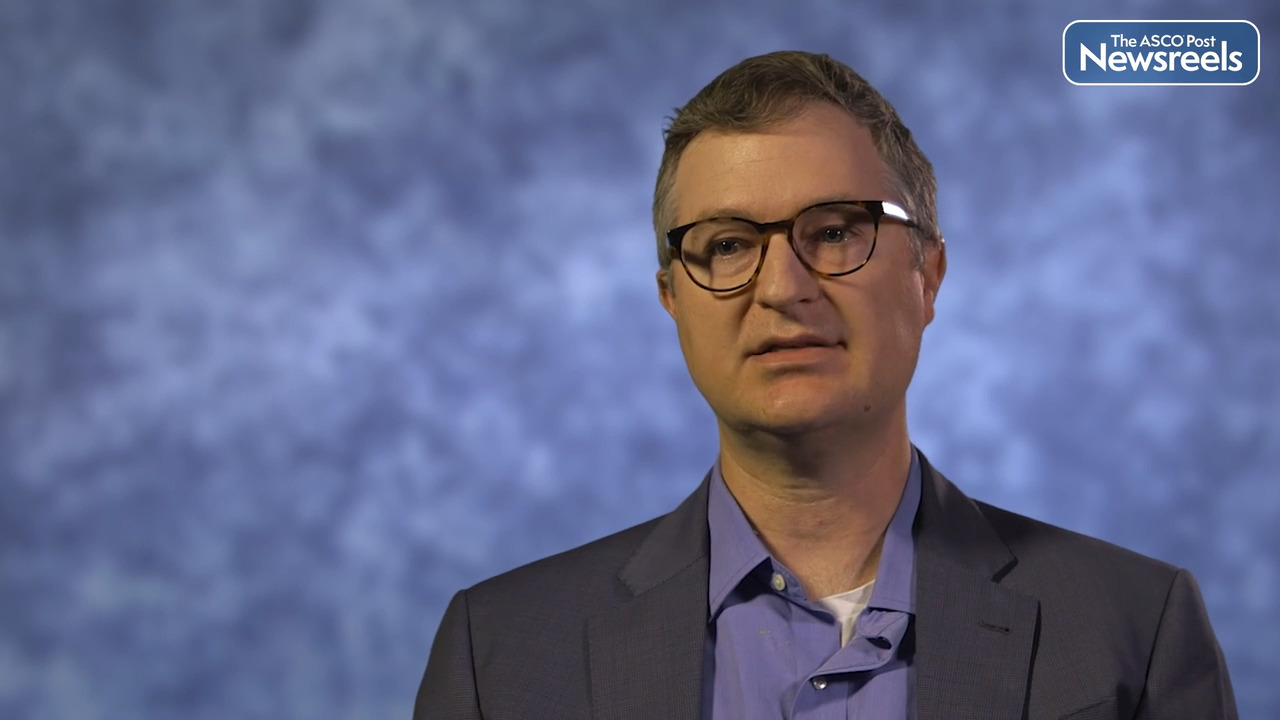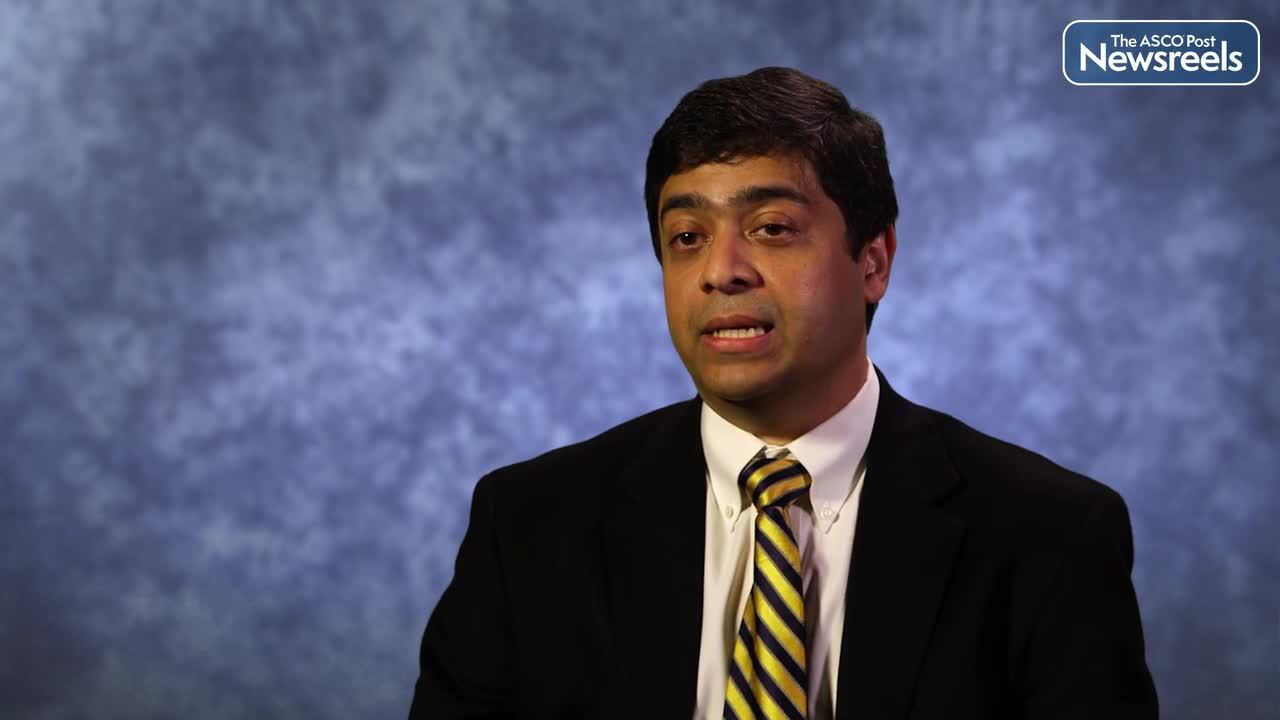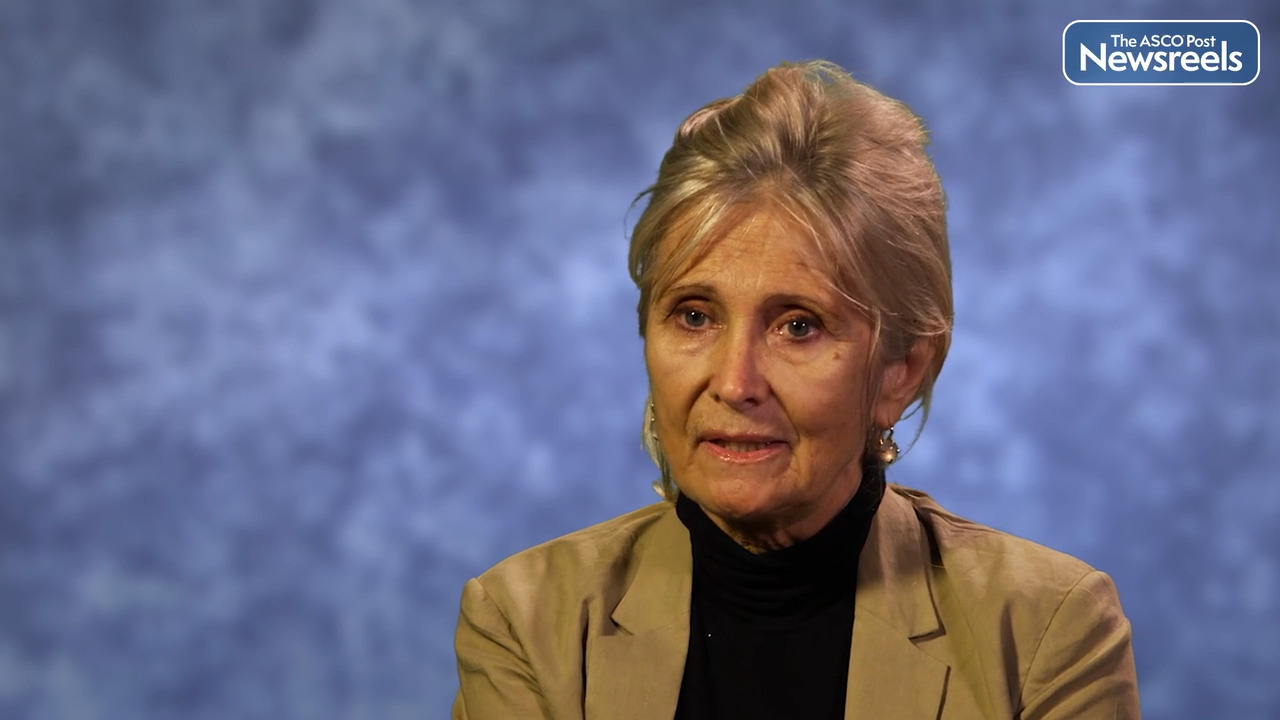Christine A. Iacobuzio-Donahue, MD, PhD, on Pancreatic Cancer: Novel Insights Into Genetics and Evolution
AACR Annual Meeting 2022
Christine A. Iacobuzio-Donahue, MD, PhD, of Memorial Sloan Kettering Cancer Center, discusses her research on the evolutionary features of advanced stage pancreatic cancers and the insights that may be used to help improve patient outcomes (Abstract PL05).
The ASCO Post Staff
Iván Márquez-Rodas, MD, PhD, of Spain’s Hospital General Universitario Gregorio Marañón, discusses final results of the phase II SPOTLIGHT203 study of systemic pembrolizumab in combination with intratumoral BO-112 for patients with advanced melanoma refractory to anti–PD-1–based therapy. The regimen achieved an overall response rate of 25% and a disease control rate of 65% (Abstract CT014).
The ASCO Post Staff
Meenakshi Anurag, PhD, of Baylor College of Medicine, discusses results from the ALTERNATE trial, which showed the combination of anastrozole plus fulvestrant was superior to either drug alone in inhibiting tumor proliferation in postmenopausal women with early-stage luminal B breast cancer (Abstract CT026).
The ASCO Post Staff
David A. Barbie, MD, of Dana-Farber Cancer Institute, discusses his laboratory’s studies, showing that malignant pleural mesothelioma, an inflamed cancer type with marginal response to immune checkpoint blockade, demonstrated high tumor cell STING expression and response to STING agonists in combination with natural killer cell therapies ex vivo. STING is the tumor cell stimulator of interferon genes (Abstract 4168).
The ASCO Post Staff
Vivek Subbiah, MD, of The University of Texas MD Anderson Cancer Center, talks about innovative design of clinical studies that may help demonstrate clinical benefit in precision medicine and advance treatment to deliver the right intervention to the right patient at the right time (Abstract DC06).
The ASCO Post Staff
Silvia C. Formenti, MD, of Weill Cornell Medicine, discusses research on the best way to integrate radiotherapy with immune modifiers, which might require changes in standard radiation oncology practices. Variables such as the type of treatment fields, the inclusion of draining nodal stations, the degree of exposure of circulating immune cells, the type of dose fractionation, and the timing of radiotherapy during immune checkpoint blockade all can affect the success of immunoradiotherapy combinations (Abstract SY43).
